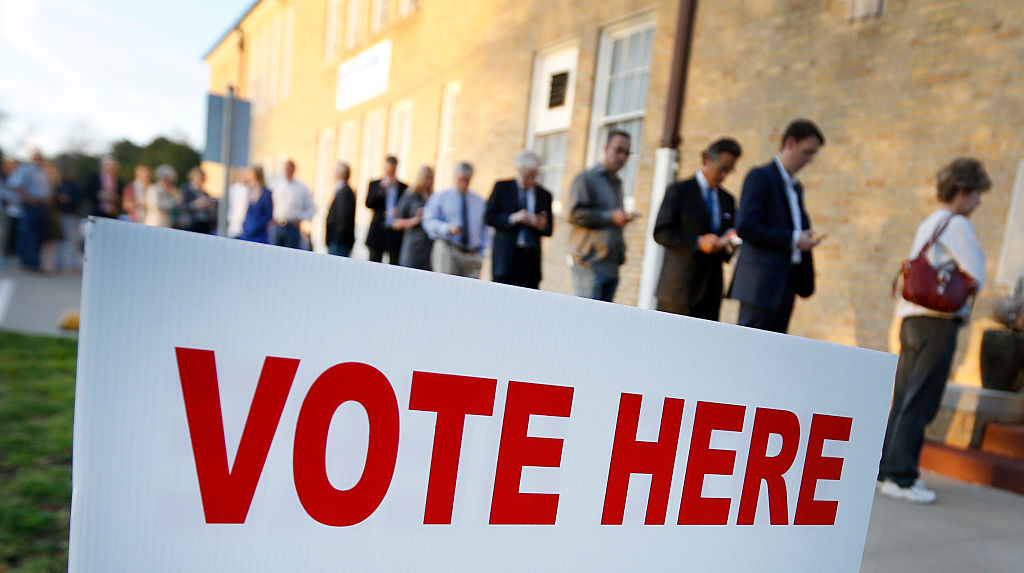The introduction of the Green New Deal resolution has reinvigorated the political debate around climate action, but politicians aren’t the only ones talking. A Google Trends analysis shows the resolution has also sparked a viral online conversation about climate change.
Since February 1, when the resolution was introduced by Rep. Alexandria Ocasio-Cortez (D-NY) and Sen. Ed Markey (D-MA), search interest for the term “Green New Deal” has rivaled that of “climate change” — one of the one most widely used terms in the climate debate.
The idea of mobilizing the entire economy to get off fossil fuels as quickly as possible, as the ambitious resolution proposes, has generated remarkable interest and enthusiasm across the country since it first burst into the political consciousness last fall.
One measure of that interest is the spike in online conversations documented in a new report from online communications expert Tim Weinheimer. Using Brandwatch Analytics, Weinheimer found that between November 1, 2018, and April 1, 2019, some 821,000 unique social media accounts mentioned the Green New Deal four million times. More than 95% of the mentions have been on Twitter.
Weinheimer told the Austin American-Statesman that these numbers are “very high compared to many other general business interest topics.”
Significantly, the report also analyzed word choice “sentiment” in the online conversations and found that 88% of the discussions were neutral in tone, 6% were positive, and another 6% were negative. This may suggest people are mostly searching for or circulating information, rather than voicing strong opinions.
The Green New Deal has gone viral for several reasons. The term itself is a memorable metaphor that recalls one of the best known and most popular presidential programs, Franklin D. Roosevelt’s New Deal, which helped stabilize and then revitalize the American economy during the Great Depression.
Also, the Green New Deal has a telegenic and rhetorically adept champion in Ocasio-Cortez, who also happens to be a master of social media. One recent example is a powerful video of her debunking the Republican claim that the Green New Deal is “elitist.”
The video was tweeted out by Occupy Democrats’ Brian Tyler Cohen on March 26 — and quickly acquired a remarkable 15 million views.
Watch every second of this… @AOC is so incredibly spot on. pic.twitter.com/ESP4dC5TTo
— Brian Tyler Cohen (@briantylercohen) March 27, 2019
Another driver of renewed interest in climate change and the Green New Deal has been the genuine grassroots movement led by those who will suffer most from our blinkered and immoral failure to address climate change: young people.
Young people in more than 100 countries walked out of schools last month in a strike meant to call attention to the climate crisis.
In this country, the youth-led, nonprofit Sunrise Movement has been at the center of the Green New Deal discussion with marches and sit-ins. And a number of their interactions with lawmakers — such as House Speaker Nancy Pelosi (D-CA) and Sen. Dianne Feinstein (D-CA) — have also gone viral.
But perhaps the most basic reason that the Green New Deal has caught the public’s attention is simply that over the past year, concern about climate change among voters has hit its highest level ever, according to recent polling. As concern rises, people are naturally more interested in solutions.
An AP poll released in January found that 48% of those surveyed found the science of human-caused global warming more convincing than they did five years earlier; 76% said recent extreme weather was the major driving force behind this shift.
So it’s the increasingly obvious reality of climate change — rising temperatures, more intense hurricanes, and destructive wildfires — that has made Americans more concerned about the climate and thus more receptive to a big new solution like the Green New Deal.

